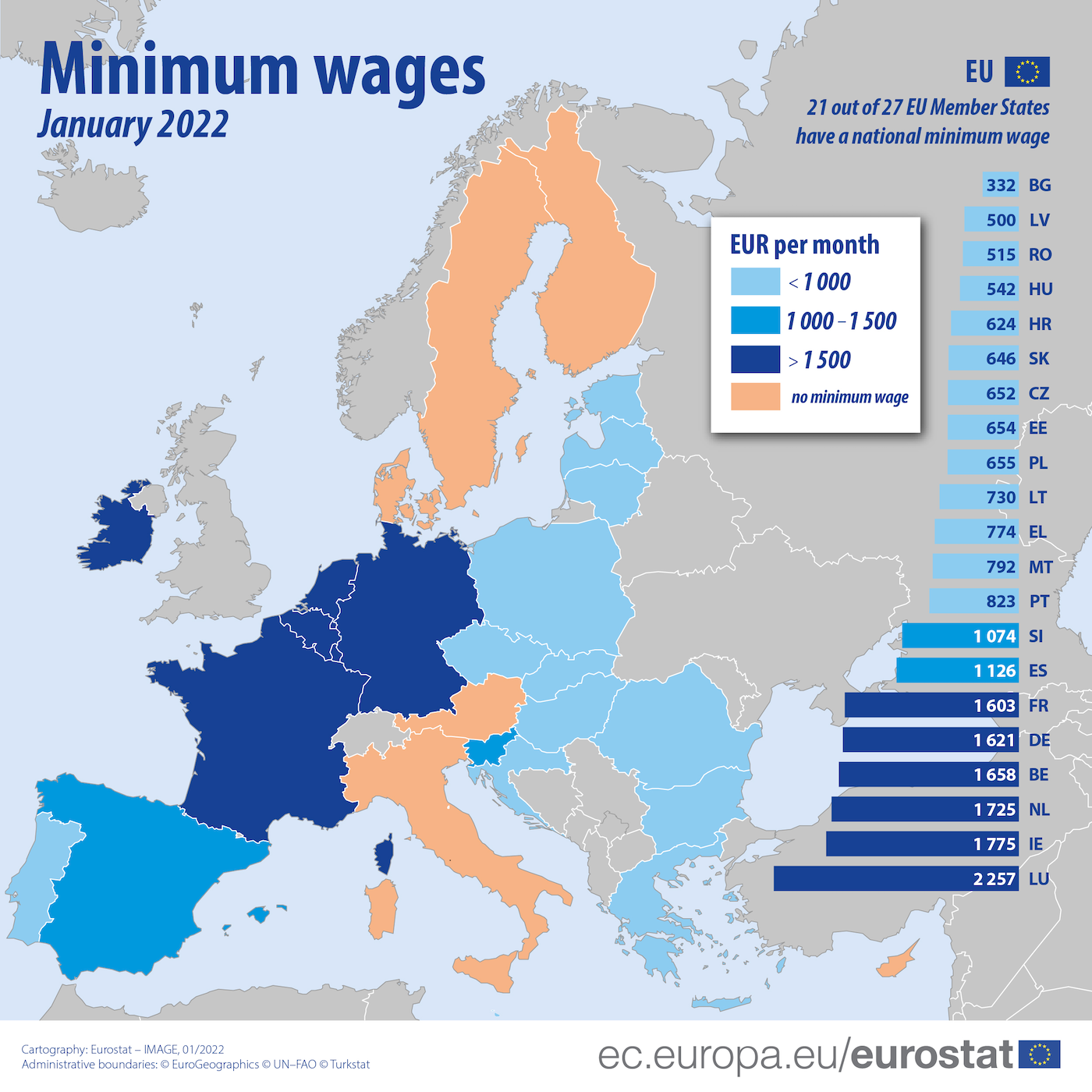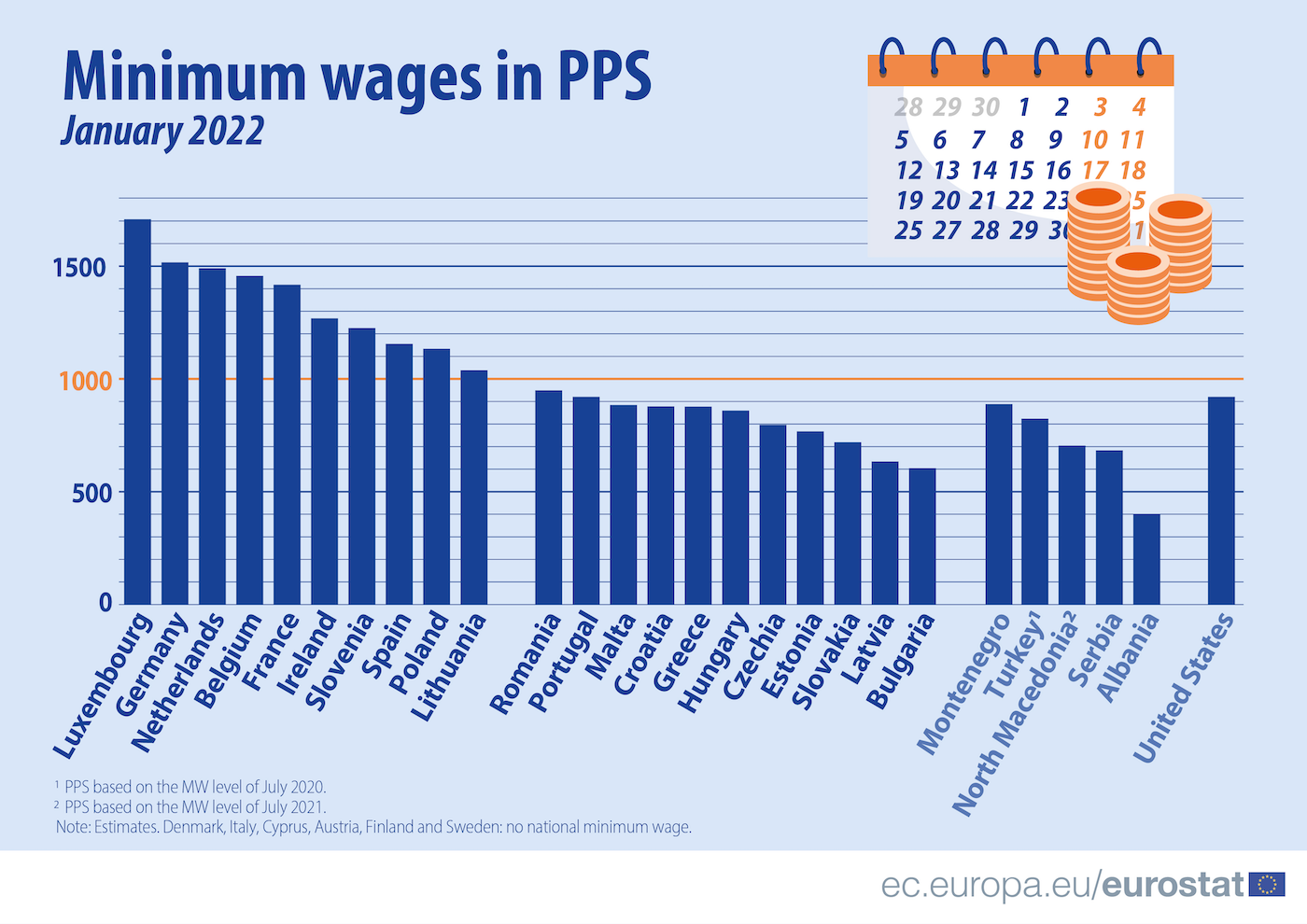
Slovenia minimum wage nears parity with US
With a EUR 1,074 minimum wage, Slovenia was the only country in Central and Eastern Europe (CEE) where a gross monthly salary of over a thousand euros was guaranteed, as of January 2022, according to new data from Eurostat. The federal minimum wage in the United States was EUR 1,110, in January, the EU’s official statistics office notes.
In all, 13 member states – mostly in CEE – had minimum wages below EUR 1,000 per month. These ranged from EUR 332 per month in Bulgaria to EUR 2,257 in Luxembourg. Bulgaria’s minimum monthly salary was followed, in ascending order, by its CEE peers Latvia (EUR 500), Romania (EUR 515), Hungary (EUR 542) and Croatia (EUR 624). The next group of countries were also in CEE, including Slovakia, where the minimum wage is EUR 646, Czechia (EUR 652), Estonia (EUR 654), Poland (EUR 655) and Lithuania (EUR 730). Southern EU member states Greece (EUR 774), Malta (EUR 792) and Portugal (EUR 823) were the remaining sub-EUR 1,000 states.

Minimum wages are higher in purchasing power standard (PPS) in EU member states with lower price levels, when compared to more expensive countries in the bloc, Eurostat found.

The only CEE country without a minimum monthly salary is Austria. The other 5 EU member states without a national minimum wage are Denmark, Italy, Cyprus, Finland and Sweden.





